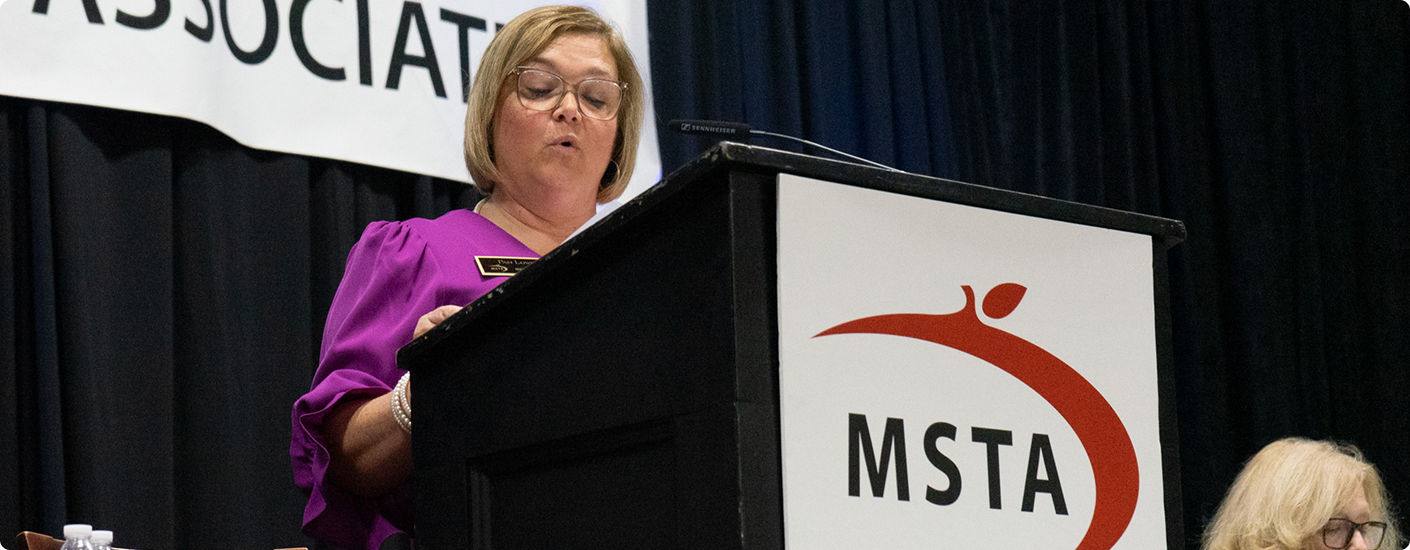- Home
-
About MSTA

-
Support for Educators
Support for Educators
MSTA has programs and benefits for educators at every step along the way.

-
Education Policy
Education Policy
The Education Policy Committee meets immediately after the adjournment of the annual Assembly of Delegates to set the legislative priorities for the upcoming legislative session.
Education Policy
-
News & Media

-
Events
- Home
-
About MSTA
Explore

-
Support for Educators
Support for Educators
MSTA has programs and benefits for educators at every step along the way.
Explore

-
Education Policy
Education Policy
The Education Policy Committee meets immediately after the adjournment of the annual Assembly of Delegates to set the legislative priorities for the upcoming legislative session.
Education Policy
-
News & Media

-
Events
Logging into msta.org requires members to have a verified email address.
If you have not yet verified your email address, you will be directed to a 403 error.
If you need to check if your email is verified, or if you would like to verify it now,
you can do that by logging in to my.msta.org.
 Login
Login
 MSTA Regions
MSTA Regions
 Search
Search
 Contact Us
Contact Us

